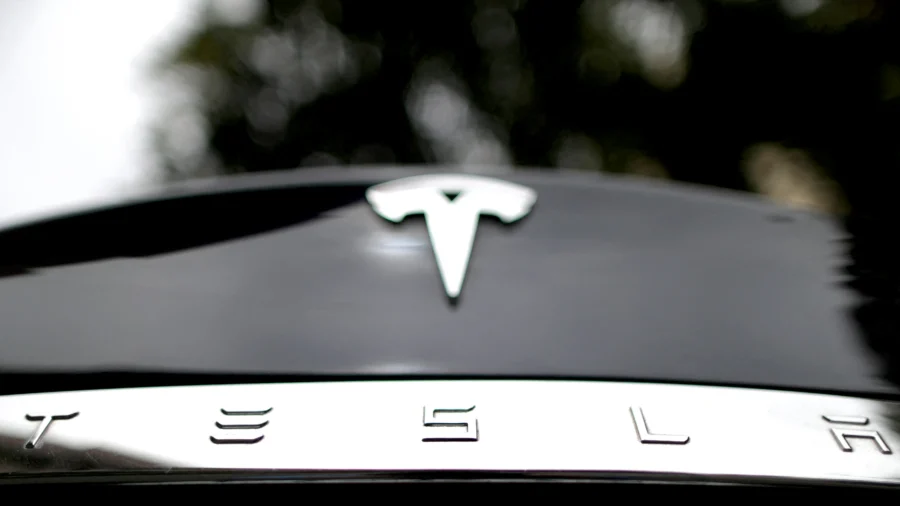Tesla is planning to lay off more than 10 percent of its global workforce in the wake of its first year-over-year decline in vehicle deliveries since 2020.
The electric vehicle giant will let go at least 14,000 of the 140,473 employees it reported in December 2023 in its latest annual earnings, according to an internal company-wide email seen by The Epoch Times. It’s not clear which departments at Tesla will be affected.
“Over the years, we have grown rapidly with multiple factories scaling around the globe,” billionaire Tesla owner Elon Musk said in the email. “With this rapid growth, there has been duplication of roles and job functions in certain areas.
“As we prepare the company for our next phase of growth, it is extremely important to look at every aspect of the company for cost reductions and increasing productivity.
“As part of this effort, we have done a thorough review of the organization and made the difficult decision to reduce our headcount by more than 10 percent globally. There is nothing I hate more, but it must be done. This will enable us to be lean, innovative and hungry for the next growth phase.”
The radical change follows a disappointing quarterly delivery report in which Tesla states it delivered 386,810 vehicles, falling short of its fourth quarter 2023 deliveries by nearly 100,000 and marking a year-over-year sales drop. Tesla hasn’t delivered fewer vehicles than the same prior-year period since 2020 and hasn’t recorded quarterly deliveries below 400,000 since the third quarter of 2022.
The decline, according to Tesla, has to do with “the early phase of the production ramp of the updated Model 3” at its Fremont factory and shipping delays caused by the Houthi attacks on ships in the Red Sea and an arson attack at its manufacturing plant outside of Berlin.
In January, Tesla predicted slower growth this year, saying that its vehicle volume growth rate in 2024 “may be notably lower” than it was in 2023 as its teams work on the launch of a next-generation vehicle.
“We are focused on bringing the next generation platform to market as quickly as we can, with the plan to start production at Gigafactory Texas,” Tesla told shareholders. “This platform will revolutionize how vehicles are manufactured.”
In its most recent quarterly update, Tesla announced a net income of $7.9 billion on $25.2 billion in revenue for the fourth quarter of 2023, reflecting growth from $24.3 billion a year earlier.
In terms of profit margins, which represent how efficiently sales are turned into pretax profits, Tesla reported a margin of 8.2 percent—a slight increase from 7.6 percent in the previous quarter, yet a decrease from the 16 percent recorded in 2022. Tesla used to enjoy profit margins of as high as 20 percent, but a series of electric vehicle (EV) price cuts have since trimmed them.
While Tesla lowered its prices to maintain a competitive edge, other automakers in the EV market are willing to keep up the price war. In February, Ford cut prices on its Mustang Mach-E electric SUV by up to $8,100. General Motors has also confirmed that its new Chevy Equinox EV will start at $34,995, or $27,495 after the $7,500 federal EV tax credit is applied.
After the Biden administration’s new rules for sourcing came into effect in January, some Tesla vehicles lost eligibility for the federal EV tax credit. The performance version of the Model 3, the long-range version of the Model X, and three versions of the Model Y still qualify for the full $7,500 tax credit.
Tesla is also facing the competition of Chinese manufacturers that are rapidly scaling up to flood both domestic and export markets with cheaper EVs. China dominates the global lithium battery supply chain, allowing Chinese companies to produce far more affordable EVs than many of its U.S. rivals.
Last year, Tesla lost the title of world’s top EV maker to China’s BYD, which produced 3.02 million EVs, compared to Tesla’s 1.81 million.
“There’s a lot of people out there who think that the top 10 car companies are going to be Tesla followed by nine Chinese car companies,” Mr. Musk said at last November’s New York Times DealBook conference. “I think they might not be wrong.”
From The Epoch Times


